#it tackles learning disabilities so well
Explore tagged Tumblr posts
Text
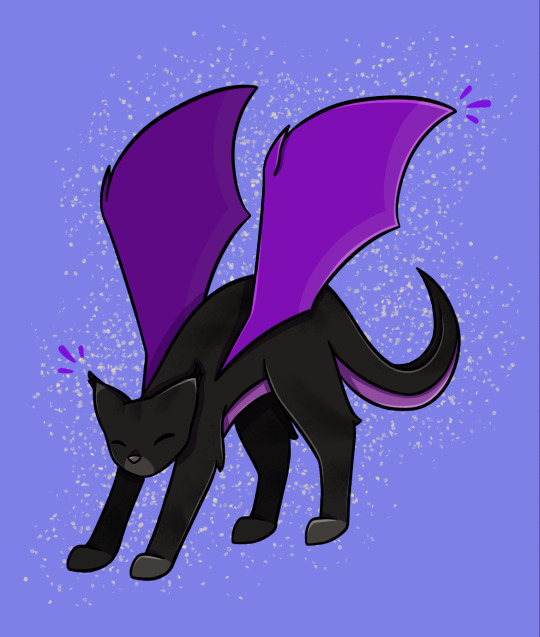
It’s fun being in a fandom that literally doesn’t exist
If there is anybody out there that enjoys the book series Upside Down Magic by Sarah Mlynowski, Lauren Myracle, and Emily Jenkins, please please make yourself known because I have been alone for too long
Dritten! 💜
#Seriously if you’re a fan of UDM I would be more than happy to talk to you about it#You can just imagine the disgust and horror on my face as I watched the Disney adaptation#fuck you disney#If you’re neurodivergent I highly suggest this book series#it tackles learning disabilities so well#Not only that but the book has good racial diversity#and so many different family dynamics#The characters have a lot of depth for a series made for 11 year olds#It’s called a dritten because it’s a mix of a dragon and a kitten!#She originally had spikes but they looked wonky so I removed them#anyone else enjoy saying purple in a funny voice#Porple#Bring the fandom to life#Nory Horace#Nory#upside down magic#udm#Dritten#dragon#kitten#Fanart#Book recommendation#book series#fantasy books#Modern fantasy#Juvenile fiction#My art#digital art#Art#artists on tumblr
73 notes
·
View notes
Text
How The Owl House did amputee representation right before Eda ever lost her arm - Disability in Media
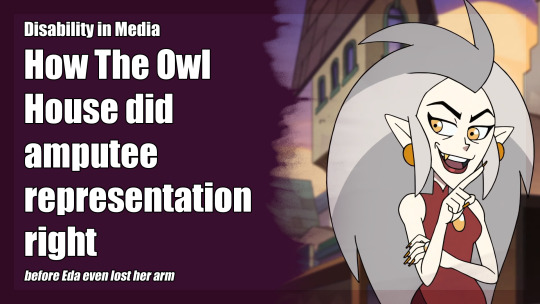
[ID: A screenshot of Eda from The Owl House, an old woman with pale skin, very large, grey hair and pointed ears in a red dress. Beside the screenshot on a dark pink background is text that reads "Disability in media, How the Owl House got amputee representation right before eda ever lost her arm." /End ID]
Dana Terrace's The Owl House has some of the best disability rep I’ve seen on a Disney channel show in a long time, with Eda, the main character’s mentor, being one of many stand-out examples.
Plenty of people have discussed how Eda’s curse and the loss of her magic can work as an allegory for disability and how refreshing it is to see a story (especially one aimed at a younger audience) who’s focus is not on her “overcoming” it, but learning to accept it as a part of her and go from there. Eda’s story tackles a lot of subjects that are often mishandled in other examples of disability representation, from the subject of parents who refuse to accept, to glass siblings and much, much more, The Owl House handles all these topics beautifully.
But one thing that dawned on me during my most recent re-watch of The Owl House is how well Eda (and later Lilith) worked as amputee representation, long before Eda actually lost her arm.
One of the side effects of Eda and Lilith’s curse is that sometimes their body parts, mainly their limbs, can fall off. It doesn’t hurt them, and Eda is seen removing them intentionally at multiple times in the series, but they can always be reattached.
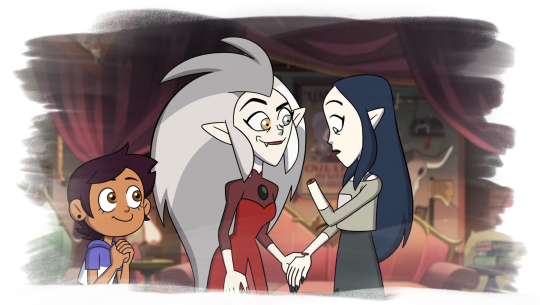
[ID: an image of Eda holding her sister Lilith's hand. Lilith is a pale woman with long, black hair, wearing grey clothes. She is looking at her other arm suprised, as her hand is missing. Luz, a Latina girl with short brown hair and a purple hoodie is looking on, smiling. /End ID]
While most likely unintentional, the way the show depicts this with Eda in particular is exactly what I wish more people would do with their prosthetic-using amputee characters.
Eda detaches her limbs, especially her legs, when they’re inconvenient or when she’s relaxing.

[ID: an image of Eda laying on the couch in a bathrobe, her hair in a towel. She has taken her legs off, throwing them to the other side of the seat. /End ID]
The fact that this is mostly played for laughs is actually a good thing in my opinion (though obviously, the show’s overall tone is part of that), as it shows the audience who are mostly children and teens, that in a world of weird and downright scary (from the perspective of the characters) things, this isn't one of them. It’s just a thing she and Lilith can do, and it can even be funny.

[ID: An image of Luz and Eda dressed as pirates. Eda is sitting on the ground, her legs detached and off screen somewhere. /End ID]
It does startle Luz and Lilith on a few occasions, but that’s more because they didn’t know the curse could do that, but once they’re introduced to it, it’s never really brought up as a big deal again.
I’d love to see more amputee characters who do this with their prosthetics. So often media is almost afraid to have amputees take their prosthetics off on camera or on the page. For some folks, our prosthetics are like a part of our bodies, but that doesn’t mean we never take them off. Show your leg amputee flop on the couch and throw their legs across the room. Have them go without on occasion, not because they have to, but because they just don’t feel like putting them on.
Likewise, the owl house creators never shy away from showing Eda when her limbs aren’t all attached. A lot of media, and kid’s shows in particular, will avoid having an amputee character’s stump visible if they ever do take their prosthetics off - treating that part of the character’s body the same way they treat gore or nudity. I’ve talked before how this actually does have a real impact on how kids in particular react to amputees - I’ve legitimately had kids I worked with cry when I took my prosthetics off, then immediately calm down when they see there’s nothing "scary" under my socks. As much as I love How To Train Your Dragon, it’s very guilty of this. Hiccup looses his leg at the end of the first movie, and wakes up with his prosthetic already attached. The Netflix series has a few instances where he has his prosthetic off, but the camera almost always avoids showing it until he can cover it up again, or is super zoomed-out so you wouldn’t be able to “see anything”. To their credit, they do get better with this in the last movie (though it's still always covered), but for the majority of the series, they are very reluctant to have any shots where hiccup’s leg is in view without the prosthetic (unless they’re very far away).
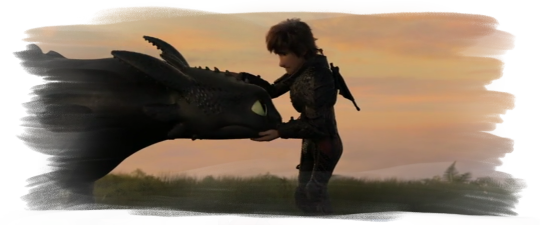
[ID: a screenshot of Hiccup from How To Train Your Dragon 3, a white man with short brown hair, and one leg missing, wearing armour made of black dragon scales and no prosthetic. He is holding onto toothless's head, a black dragon. /End ID]
Ironically, Eda does (permanently) loose an arm at the end of season 2, but I don’t really have much to say about her as amputee representation on that front, since she’s absent for a lot of Season 3, and when we do see her again, everything is so hectic, the story doesn’t really have any time to focus on her missing limb (which is reasonable). I will say, I do appreciate that they kept the amputation when she's in her owl-beast form in the finale, but there's honestly not much more to say about it. We do see her again in the epilogue after she’s had some time to settle into the amputation, wearing a hook prosthetic, but it’s, once again, too quick to really say anything from a representation standpoint. There's a few little nit-picky things I could bring up, like the fact they seemed to change the type on amputation she had (when she looses it, we see the split was very close to the elbow, but in the epilogue she has most of her forearm again) but those read to me more like animation mistakes or an odd prosthetic/clothing designs rather than a representation issue - and as someone who's worked in animation, given the stress the team was under for the finale, I'm not really worried about it. Like I said, it's more nit-picky than anything.

[ID: A screenshot of Eda, her hair tied back and wearing a red robe and a hook for her right hand. /End ID]
Despite all that though, I still think Eda is still good amputee representation, but mostly because of how they depict her curse’s side effects rather than her actual amputation. She’s honestly one of the only characters that I think you could refer to as “amputee coded” (outside of maybe Teen Titan’s Cyborg), and I genuinely wish more creators would treat their actual amputee characters the same way the Owl House treats Eda in that regard.
#Writing disability with Cy Cyborg#Writing Disability#Disability#Disabled#Disability Representation#Writing#Writeblr#Authors#Creators#Writing Advice#Disabled Characters#On Writing#Disability in Media#The Owl House#TOH#Eda#Owl House#Eda The Owl House#eda clawthorne#eda the owl lady
825 notes
·
View notes
Text
Also preserved in our archive
The internet has taught me many things; how to start a crochet project I will inevitably abandon, how much I can cry about ancient animals dying together in a burrow, and how persistent and well-accepted eugenics is in our society. Now it’s usually around the time I drop the e word in casual conversations that people’s eyes glaze over and their feet start shuffling back. A comment section is irreparably derailed when eugenics enters the chat. You, yourself, might be considering closing the tab and calling it a day. What’s so silly about these reactions is that I (or other disabled people like me) am rarely, if ever, the first one to bring it up. You are. And that’s because the lexicon of eugenics thinking is widespread, insidious, and learned. It rolls off the tongue or into the keyboard with such unconscious precision that any mention of its connection to its historical roots is met with immediate disavowment. But if writer Marie-Helene Bertino’s quote is to be believed—“what we love, we mention”—then y’all love eugenics. Given our most recent past, nowhere is this love more apparent than how we collectively speak about viruses. It’s there in RFK Jr. leading the MAHA charge against vaccines despite benefitting from them himself, and it’s there in wellness influencers tackling your post-viral fatigue by repackaging the Protestant Work Ethic as a manifestation series (for only $899!), and it’s there in the public health messaging that says “it only affects these people” that infers that these people might be an acceptable loss. (See: HIV, Monkeypox.) The name of this Substack is inspired by Dr. Fauci’s infamous “the vulnerable will fall by the wayside” quote for a reason. But it’s not just people in charge or influencers with big platforms relying on the death of disabled people (and others) to earn money or political favor. It’s every day, in every conversation, in every political group. It’s everyone, it’s you, and it’s me, too.
#mask up#public health#wear a mask#wear a respirator#still coviding#covid#covid 19#coronavirus#pandemic#sars cov 2#eugenics#covid eugenics#stop covid eugenics
112 notes
·
View notes
Note
Hey! I’m writing a story that involves a lot of different perspectives of disability, I love scifi but god can it be awful about disability so I’m trying to make an anti that. It mostly focuses on the idea of the cure narrative. A big theme at the core of it is accepting your disability because you wouldn’t be the person you are without it. You’re an important piece of the richness and diversity of humanity etc etc. That’s a message that’s very close to my heart as someone who’s neurodivergent and physically disabled from birth.
But I also know my experiences and feelings are far from universal. I wanted to show other perspectives, other interpretations of that core message, so I added a character who was recently disabled a year ago which has significantly uprooted her life. He also doubles as showing someone who became disabled through doing dangerous things he shouldn’t have been doing because I want to have a way to tackle disability as a punishment or moral thing (another shitty trope that scifi is full of! :sob:)
Her acceptance is the most raw and recent of the group’s, happening over the course of the story. But since her experience of disability is so different from mine (never having lived without it), I wanted to look for outside opinions. What are some things I should keep in mind while writing him? Do you have any recommendations for articles/blogs/etc from people with similar experiences?
Thank you! I love what this blog is doing :) <3 Apologies if this is a little incoherent, it’s one of those days
Thank you for your ask! For a character with an acquired disability, one of the big things to consider is just how much recovery there will be. Even after leaving the hospital she will be on bed rest for a bit, and afterwards comes physical and/or occupational therapy for at least a few months. Recovery is a taxing, slow process that makes a person realize just how much process they’ve lost for tasks that they didn’t think much about. He would also probably have pain and maybe even a new routine to take care of the injury. It’s hard to give specifics of what your characters recovery will involve without knowing the injury though.
As for resources, here are some links I think can help! Thank you mod Sasza for the help compiling them :] (smiley face
Special Books By Special Kids - A channel with a ton of interviews with disabled people from all walks of life, mostly with developmental disabilities but there are interviewees with acquired ones as well.
Footless Jo - A youtube channel run by a woman with an amputation.
Born Blind vs. Becoming Blind - What Are The Differences? - A video comparing the experiences of someone who’s been blind since birth and someone who became blind later in life.
LEARNING FROM WHEELCHAIR FRIENDS! - A video of three friends with acquired disabilities talking about their lives and the disability community.
Sabia and Loren - A couples channel that mostly focuses on Loren’s life after having amputations.
22 & Suddenly Disabled: My Story | Functional Neurological Disorder - A video on living after suddenly developing FND.
Tactile Art - And article on making art as a deaf blind artist
Changing Faces - Stories by people with facial differences, has a filter for acquired disabilities.
Phoenix Society Resources - stories and articles by and for burn survivors about their experiences and coping with a sudden disability.
Girls with Grafts (podcast) - Two burn survivors talking about their experiences, can be listened to on most platforms that host podcasts.
Augmentative and Alternative Communication: How Becoming a User Changed My Relationships - An article by Alice Wong, who is disabled since birth but became no speaking after a medical emergency. She writes a lot about disability so I recommend checking out her other works as well, though this focuses on aquiered disability.
If you have any more specific questions feel free to ask again!
Have a nice day!
Mod Rot
108 notes
·
View notes
Text
How to Write Disability: SPOP vs ATLA
(TW: ableism)
(before i start talking about this, i have to tell you that i am not physically disabled so my observations may not be a 100% correct. i'm only writing this post in relation to my experience with autism. if you feel like something i've said is inaccurate or insensitive, please feel free to let me know!)
so the two characters i wanted to talk about, in reference to writing disabled/neurodivergent characters, is Entrapta from SPOP and Toph from ATLA.
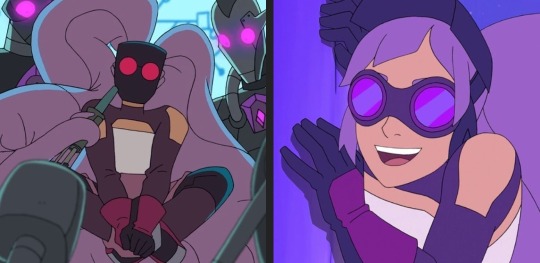
Entrapta is an autistic woman who grew up in solitude, only surrounded by robots. as a result, she is desperate for human etherian connection while at the same time, struggling with social interactions because of her autism.
she was pretty heavily autistic-coded, even before the writers confirmed that she was canonically autistic; she has a hyperfixation on tech and machinery, she is shown to stim a lot, she has a preference for tiny food (likely a sensory issue) and she is not good at reading social cues or communicating in a way that neurotypical people would understand. she is also an extremely intelligent and intuitive person who is not only good at handling tech but also shows love and affection towards people in her own way.
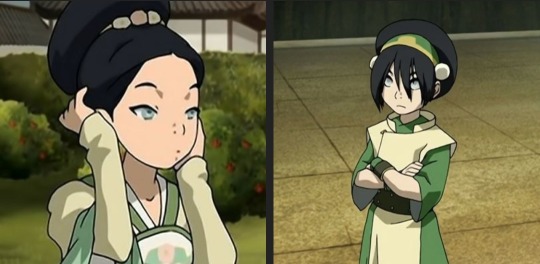
Toph is a character from ATLA, who was born blind. not completely unlike Entrapta, Toph was also raised in solitude, although she had her parents and servants to look after her.
her parents were convinced that Toph was incapable of being independent, because of her blindness, and were unwilling to look past her disability and treat her as a person. as a result, Toph is extremely rebellious and stubborn. she is an incredibly capable individual who learned how to navigate her way through earthbending. however, she still faces difficulties due to her disability and has to rely on her friends every once in a while.
the trope that these two shows share in relation to their disabled characters is the humor. there are jokes made about Entrapta's and Toph's disability in both shows. however, the key element that differentiates these jokes is the target.
Toph was never the butt of a joke in ATLA. in fact, she was the one making jokes about her disability 90% of the time. Toph was comfortable enough with her blindness that she didn't mind joking about it or even pranking the others sometimes.
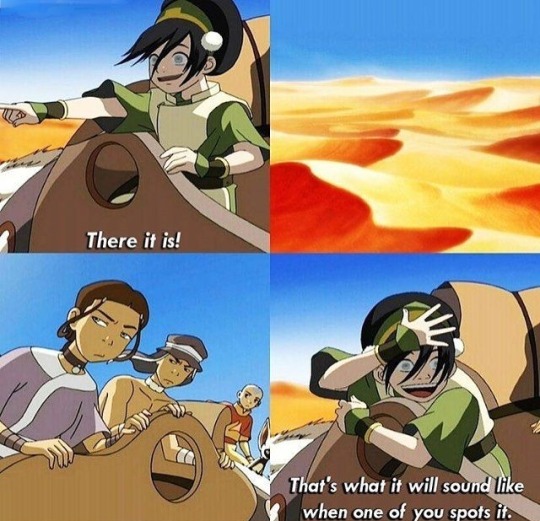
in fact, one of the running gags in the series is that the other characters forget that Toph is blind because of how insanely capable she is.
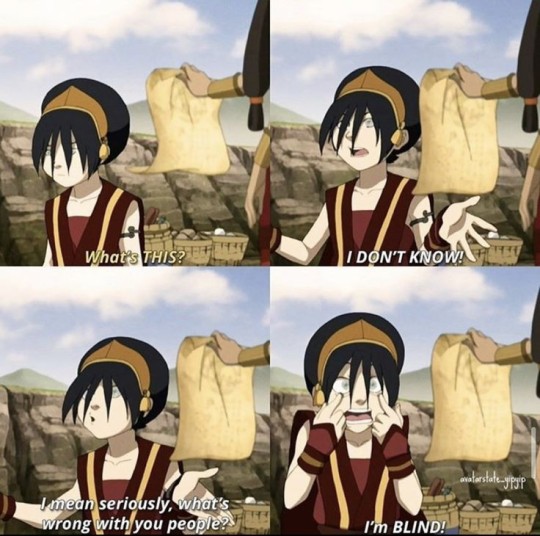
Toph is never the butt of the joke, she's the one making fun of the others for forgetting about her disability. and it's all done in good faith.

and whenever someone is being ableist towards Toph, it's taken seriously. it's not played off as a joke and the narrative doesn't act like people mistreating Toph is this funny gag that everyone should laugh at.
now let's come to Entrapta. there are “jokes” in the show made about her disability as well, except these jokes are often made at her expense.
one of the most problematic parts of the show concerning Entrapta is the way Perfuma leashes her TWICE, because she was worried that Entrapta would get distracted and leave the group. so instead of holding Entrapta's hand or something like a normal person would, Perfuma decides that the best way to tackle this situation is to treat Entrapta like an animal and put her on a leash.
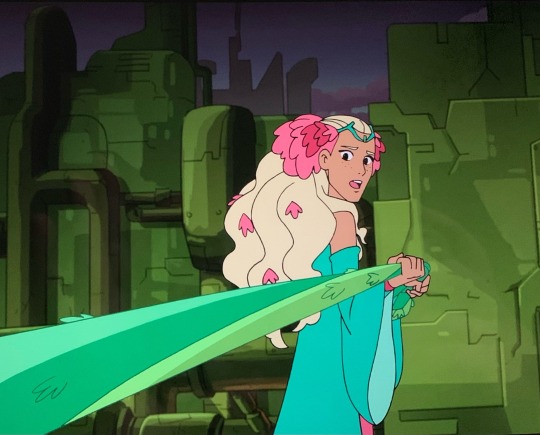
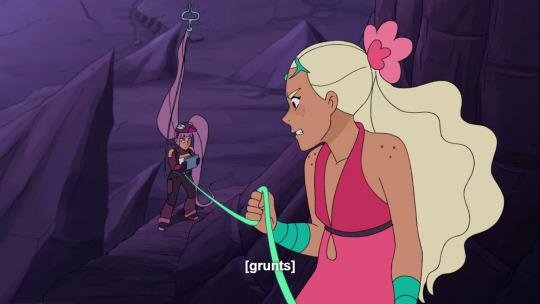
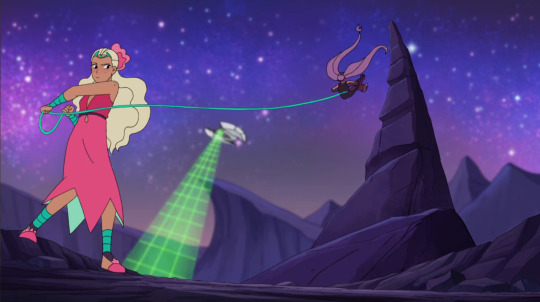
this is shown as a joke and is never addressed seriously. the show writers think that Entrapta being dehumanized and infantilized is supposed to be funny and quirky. Entrapta never gets to confront Perfuma about this or gets any kind of closure.
this was the main example of ableism in the show but there are also other minor scenes where we see characters treat her in a way that other characters aren't treated.
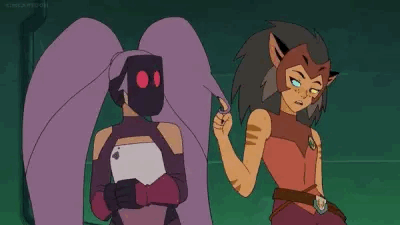
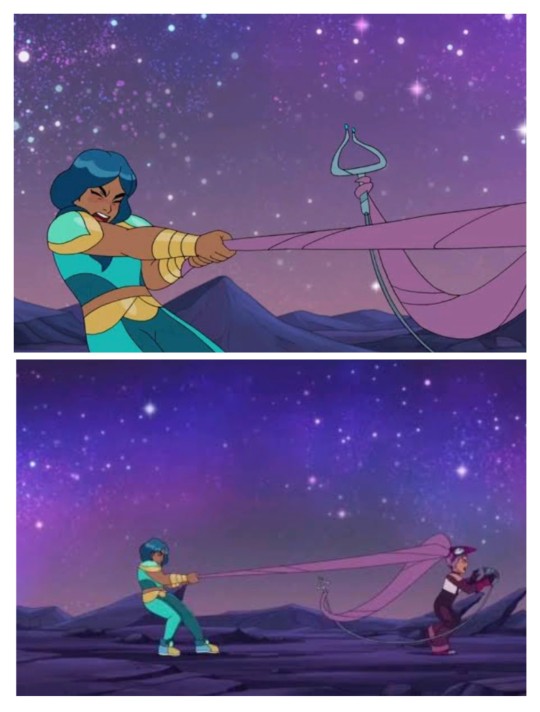
examples being Catra using Entrapta's trauma and loneliness to manipulate her, and Mermista literally yanking on Entrapta's hair and yelling at her, because she couldn't understand social cues.
there are also multiple examples of what i'd like to call the “translate nerd language” trope, where one of the other characters get irritated at Entrapta for using technical terms while speaking, and she has to dumb it down for them.
there's a way to write disabled characters and while Entrapta was a very relatable and sympathetic character, the ableism towards her is never addressed. the princesses are never called out on their actions, while Catra gets off scot-free after a vague apology.
when ableism was portrayed in ATLA, it was always taken seriously. Toph was allowed to leave her toxic parents and find people who accepted her for who she is, she was allowed to prove people wrong and be a powerful character in her own right. meanwhile, Entrapta was forced to be friends with the people who mistreated her and she was only kept around because she was useful.
#yes this is a repost because tumblr decided to act weird lol#ableism tw#tw ableism#spop critical#spop salt#spop criticism#spop discourse#spop#she ra#anti spop#neurodivergent#autism#disability#entrapta#toph#atla#also toph was allowed to be vulnerable as well she wasnt strong 100% of the time#she was allowed to talk about her concerns and miss her parents even after the way they treated her#meanwhile entrapta's trauma is never addressed
232 notes
·
View notes
Note
reading the things that have been said here and by literally every ml critic about how adrien and every other victim of abuse or anything else really in this show is just ignored made me think about how people have been saying that adrien should have been the main character. and i can see where they're coming from because like marinette is so irrelevant to all the plot points that actually matter in terms of gabriel's whole thing. i really do want ml to be a girl power superhero/magical girl show where the main character is a poc female but ml is just not that show.
marinette at this point is the main character because the narrative says she is. a lot of the things that happened, even way back in s1, happened because marinette kept inserting herself into things. she got to be the one to have the final fight with hawkmoth AND have that final conversation with gabriel even when they like barely spoke to each other and there's literally nothing to their relationship besides the fact that she's dating his son and also the obligatory hero-villain connection. like she's so disconnected from the actual heart of the original plot that they had to keep forcably shoving her in there to make her relevant in her own show, which keeps making her look like an annoying, jealous stalker who doesn't care about anything but her own desires, comfort, and happiness
just like, when you have a considerable amount of fans that say not even that they want him to have a spin off series where he deals with his own shit, but that adrien should be the main character of the main series because it would make so much more sense, it doesn't matter whether they're right to want that or not, what matters is that clearly the writing got fucked up somewhere for them to even consider it seriously.
---
It's not only that Marinette isn't plot-important enough to justify her bloated protagonist status. The fact of the matter is that Marinette just doesn't have enough to contribute as a fictional person to justify her protagonist status even in the civilian plots she gets shoehorned into. Part of this is the "lesson of the day" aspect of the show, where Marinette's contributions to the plots will have her do something blatantly insensitive, selfish or downright awful to someone when she gets involved in things that are none of her business, all so that the writers can turn that into a lesson that they then don't have the decency to commit to. The writers are too busy throwing her a pity party for her little oopsies that should totally not reflect on her character even when it's the very core of the character and the way she operates.
For all Marinette is supposed to be a kind, intelligent and heroic person, we just don't see her making the lives of the people around her better the way you'd expect from someone called "everyday Ladybug" once upon a time, or even the way you'd expect any halfway decent teen hero protagonist to. Like, would it kill the writers to write more than one or two episodes where someone actually asks Marinette for help with something and then at least Marinette's well-meaning but misguided attempts to help wouldn't be so self-centered? No wait, them asking for help instead of merely receiving it at Marinette's decision would give them too much agency and we can't have that in the puppet theatre!
Basically, the Miraculous writers are so bad at their job that the series actively suffers from Marinette, as she is being written, being the protagonist. Like, one of the first things I said about 'Sublimation' was something along the lines of: “I have no faith in these writers' ability to tackle the topic of physical disability from the perspective of their coddled, able-bodied protagonist,” not because I thought able-bodied kids couldn't learn understanding alongside an able-bodied protagonist, but because I knew the writers always consider Marinette's comfort paramount. Because Marinette's comfort is paramount, abuse victims and disabled characters are expected to cater to her if they're supposed to be seen as “good”.
As it stands, Marinette is so high-maintenance that it doesn't matter what anyone else is dealing with, Marinette being uncomfortable with them having needs is more important to the writers than those needs every single time. Like, Kim Possible, twenty years ago, had an episode where Kim was uncomfortable around a kid who needed a wheelchair, and the lesson of the episode was that it wasn't about her, so she just had to get over herself. Miraculous would never, and that's the problem. That's why Marinette has such difficulty acting like the good person she theoretically is; she’ll be kind and considerate when it's convenient for her, but, the longer the show goes on, the more the writers make every single moment inconvenient for her.
I described this issue to my brother, who said it reminded him of how one of Miraculous' pitch phases had a version of Adrien who needed to use a walking stick as a mobility aid. Astruc was told that he couldn't give such a prominent character a physical disability because they were concerned over how hard it can be to depict with sensitivity, and now he's made an episode with a character getting her prosthetic legs broken but it's only relevant because it makes the protagonist who broke them upsette. I think the executives had the right idea when they told Tommy the Clown that they didn't have faith he could depict physical disability with the required sensitivity, even as Astruc's own arrogance insisted otherwise.
29 notes
·
View notes
Note
Hi! I'm sorry if this an inappropriate question to ask, but I was wondering if you had any advice on how to accurately portray characters of color? I'm White and my creative fiction includes a lot of diverse characters, and I don't want to just ignore how their races impact their stories but at the same time being a racial/ethnic minority isn't something I've personally experienced and I don't know how to walk the line between good representation and some White dude telling stories that aren't his place to tell. Do you have any advice on how to accurately present characters of color without appropriating?
Luckily I have time today so I'll give my 2 cents! For one: there is no such thing as "accurate" portrayals of POC. Our experiences aren't a monolith. Something personal I would write and pull from my lived experience might not be relatable to, say, another queer Indonesian. And characters I write that are outside of my identity (Black, disabled, etc.) are inevitably going to be less authentic compared to someone of those identities tackling those characters. That's just something to make peace with- we can only do the best we can with the perspective we have.
With that: the usual platitudes are "do your research" and "listen to POC", I dislike both of these sayings! I get what they mean, but I don't love the insinuation of "doing research and listening" as a means of personal creative benefit. So instead I encourage different mindsets:
Instead of "do your research" (where identities can be treated as subjects to be learned and not people) I prefer "expand your perspective". Art is so cool because it's self expression. Stories are awesome because it's a shortcut to a person's deepest feelings. They get you fascinated and invested in a life so unlike your own. I can't stand "I only read queer books" people because it's an admission that they refuse to engage with identities they can't relate or project onto. There are so many important stories out there outside of your bubble. Get into the habit of earnestly learning about perspectives outside of your own. And not with the mindset of "this'll make me a better writer if I consume the identity and can become them" but with the mindset of getting to learn about a new friend. I think people take "stay in your lane" too literally sometimes where they focus so much on writing about their own experiences that they miss out on empathizing with other people.
Instead of "listen to POC" (I hate this one. Because our opinions aren't a monolith, it essentializes all of us to being media critic savvy experts, and white people tend to cherry pick the POC opinions they like instead of looking at the wider conversation) I prefer "improve your media criticism skills, and supplement with different perspectives". Not only should you "expand your perspective" as my last point said, but you should also be critical of things you read and learn! Learning about how ableism, racism, classism, etc. operates in life helps inform your opinion of how an identity was portrayed in a story. Recognize that earnest, and well intended attempts at representation can still be flawed or performative (the amount of times I'm told "I'm sure they weren't intending to be racist" like I truly believe the writer is a mustache twirling racist villain is too much). It's important to be opinionated! Do the work to find different perspectives to inform your own.
Lastly, don't ask for labor from marginalized people haha. I know that's what you're doing now (and this always happens to me whenever I voice a critical opinion of race representation) but I happen to have time (I'm still waiting on my editors to get back to me, such is the life of publishing). Most people don't, and are exhausted with explaining themselves. I don't bother my other marginalized friends whenever I write perspectives outside of my own. I do as much of the work reading articles, history, criticism, art etc. first. Especially if it's going to be a published work, then find Authenticity Readers and pay them for their labor. Avoid asking general, easy to google answers y'know? A lot of people have done the work writing thought pieces in their own time about a variety of perspectives.
#askjesncin#media criticism#writing advice#there isn't a formula for how to write people of color#just a mindset on how to approach our art and representation
84 notes
·
View notes
Note
Christmas Kindness Letter: (hope I'm doing this right)
To Dandylovesturtles,
Where do I start? I have so much I could praise you on. I have read pretty much all of your Rise fics, and you’ve written several favourites that I continue to return to. I particularly love Sharing Ice Cream, and Other Dad Things, Tapping Out, and I May Be Invisible, But I Still Look Good— God, I could praise that last one ALL. FREAKING. DAY. I’ve read through the whole thing… what, twice? But have also come back to read particular parts and scenes. I was absolutely blown away by it. I laughed, I almost cried, and I felt so much on the first read and the re-read, and I WILL be reading Leo’s journey again— it’s so funny, how Donnie is also your favourite and you targeted Leo. Judging by the existence of Say Something True and Emotional Support Water Bottles (hilarious name, by the way), you seem to like going after Leo quite a bit (I did also read Corrupted Upgrade, so I did not forget about that one, either, another great fic!)
I won’t lie. To me, I May Be Invisible is the unofficial sequel to the Rise movie— with it calling back to lessons that should be learned (particularly the “next time you think of doing something dangerous, stop and look for us first”), how the fan-created lore fits in perfectly with what’s already canon, and how you write the characters— which I CANNOT praise enough. It feels like you yoinked them straight out of the show. It’s absolutely incredible, how intimately you seem to understand them, and how you captured their voices so perfectly. I hope to one day have that ability myself.
But so they aren’t left out, a few words on the the other fics I mentioned! Sharing Ice Cream is such a cute little story that honestly tackles Donnie’s insecurities so well— and I LOVE how you wrote Splinter. He felt so in-character, and I HEARD his voice in some of the lines you wrote (especially with him talking to the door, that was amazing!). It’s so sweet!
Tapping Out? That’s definitely influenced how I view Donnie and Leo’s relationship— especially the part about them being equals. Neither is older or younger. They’re just brothers, and that’s all. The point of twins are for them to be the same age. Not to mention, their SYSTEM is SO SWEET. It’s cute how it was created for Donnie, probably because of his disability, but eventually came in clutch for Leo, too!
And Corrupted Upgrade, since I brought that up? The first part HURTS bad (that was the first fic I read where the brothers were actually cruel to each other, and it made me realise just how important their love for each other is to me) Donnie makes an excellent super villain, in that. I’d say he enjoys it too much, but it’s all an attempt to get his family’s attention and make him miss him. Which is sad… anger born of pain— an interesting route, too, since it’s probably super easy (and tempting) to write him spiraling emotionally. An interesting twist on the story!
There’s a ton, ton more that I could say, but I don’t have the words (nor the patience) to type a college-worthy essay. I certainly hope you get the point, and I look forward to whatever you have in store for us, next! You are truly one of the greats, in my opinion. I wish to be like you, one day, in terms of ability.
I’m eager to see what you share next! Have a great Christmas (if you celebrate).
@dandylovesturtles
Christmas Kindness Event Post
28 notes
·
View notes
Text
Official introduction post 🙂↕️
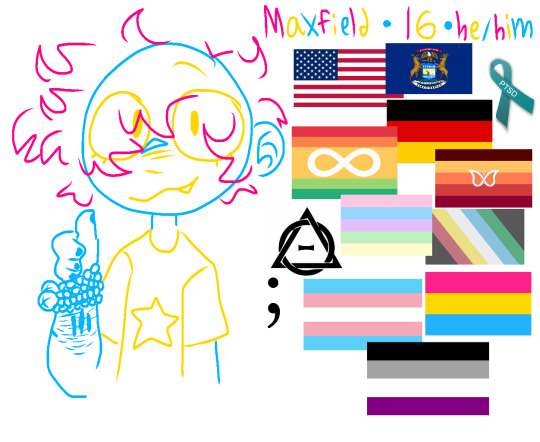
EDIT: I got tired of scrolling past this pinned post so I put a cut on it- woh :3c
Anyway!!! That’s me!!! :3
My real name is Maxfield or Max, but you can call me Starrz!!! Considering it’s my name online :D
I am a digital artist who is very flexible in their craft, I see art very structurally so I don’t really have a set art style, but rather multiple art styles depending on what media I am drawing for! <3
examples of this include;
YDB(You Deserve Better) art style
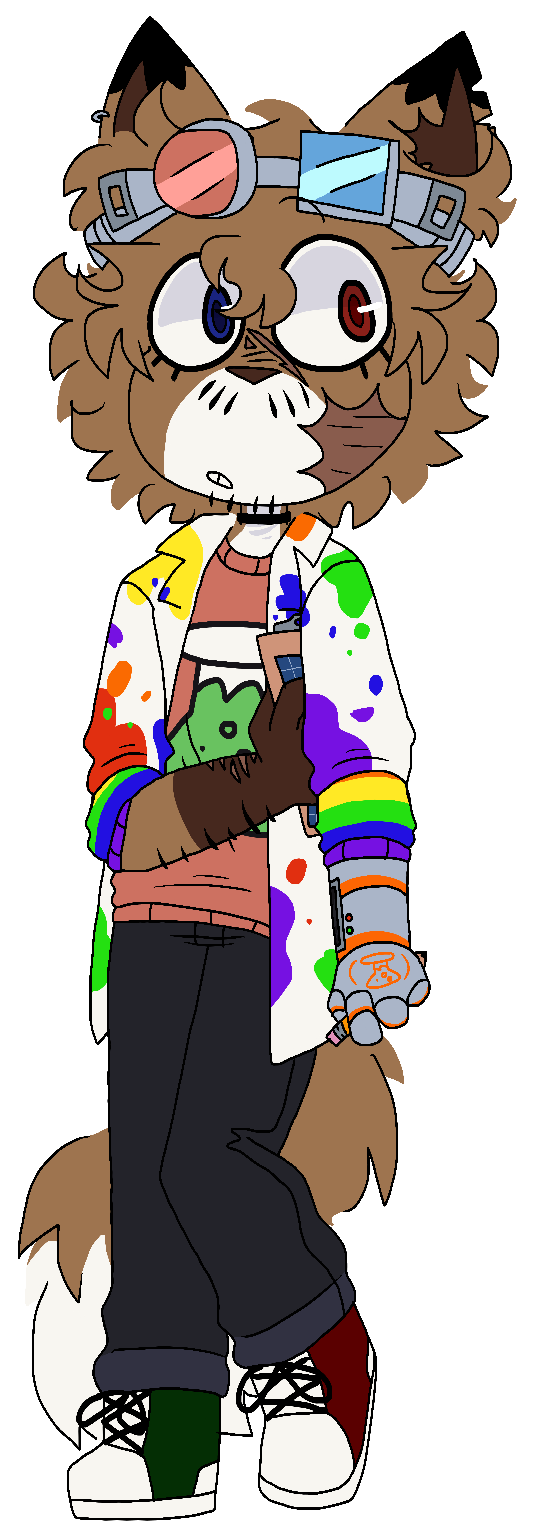
C+B(Cuts And Bruises) art style
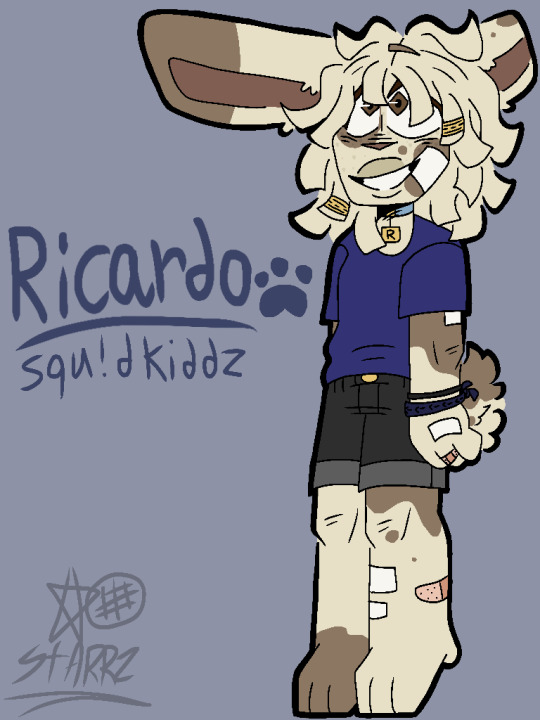
SJ(Soweli Jan) art style
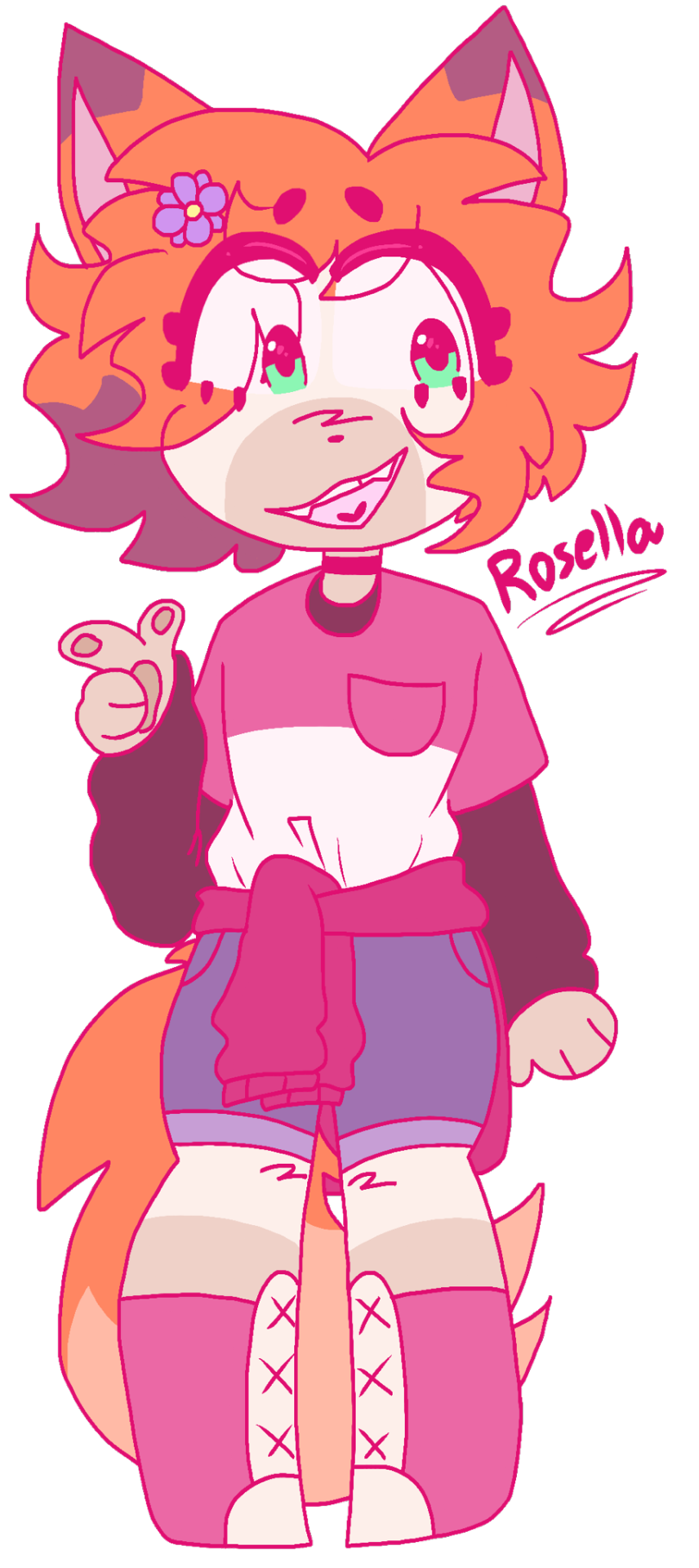
And my signature doodle art style I use for everything!! :3
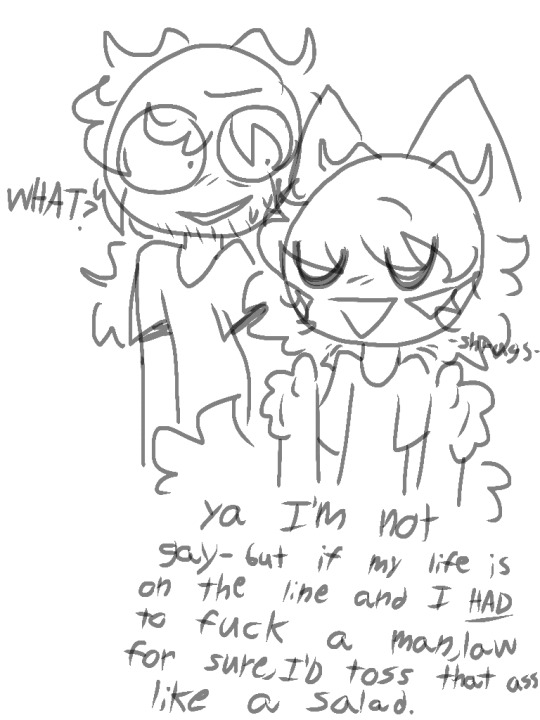
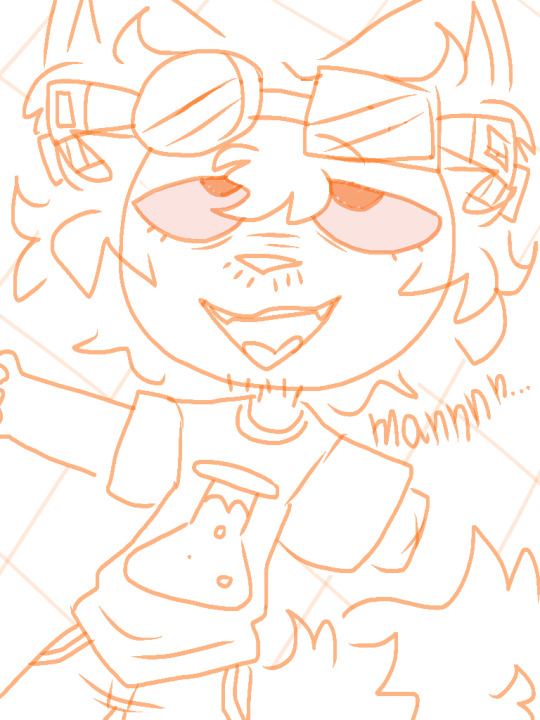
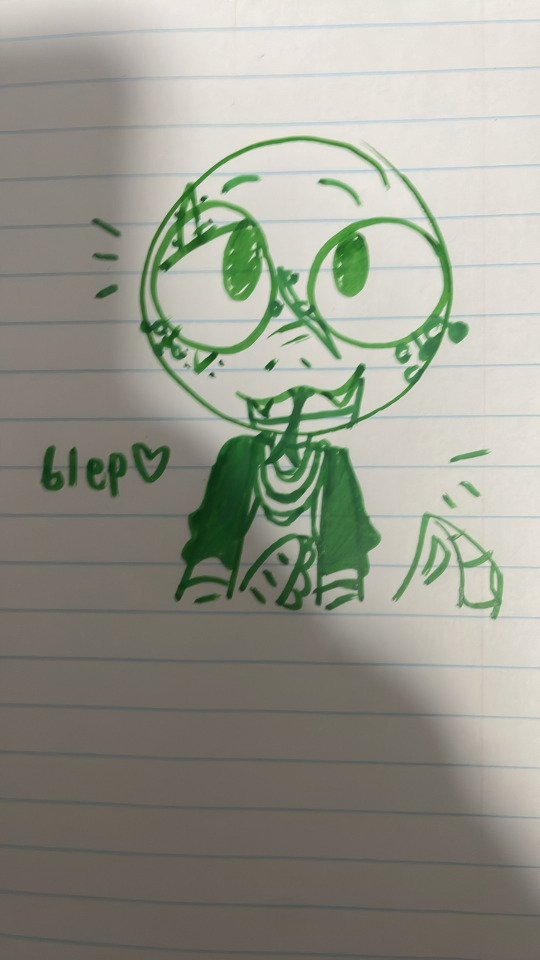
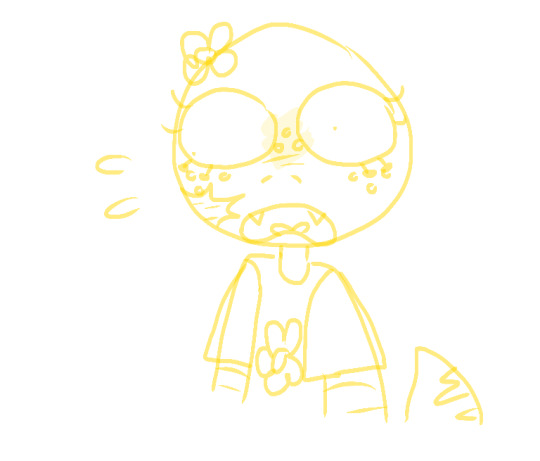

Fandoms I’m apart of!!!
-Btd(boyfriend to death)
-ykmet(you kill me every time)
-Undertale
-Deltarune
Circling back to the drawing of me with all of the symbols and flags that I identify with at the start of the post; let me tell you about those!!! :0
Country flags
America— I live in America, self-explanatory

Michigan— I was born and raised in Michigan, a Midwestern state in America

Germany— most of my roots are from Germany, making me German American

Disability flags
ASD(Autism Spectrum Disorder)— I was officially diagnosed at seven years old with Asperger’s syndrome; an outdated term for high functioning autism. This is a learning disability, however people with this disability(myself included) are very capable of wonderful things and we are all very intelligent in our own right<3
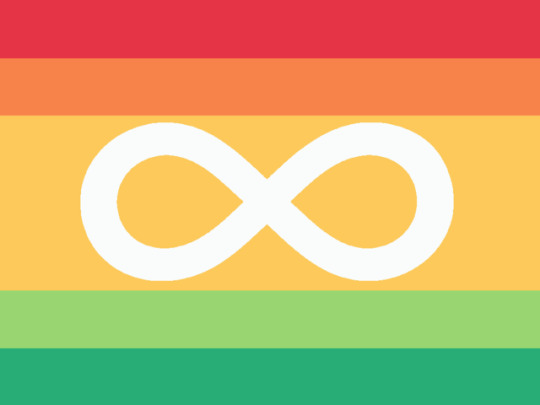
ADHD(attention deficit hyperactivity disorder)— I’m not sure when I was officially diagnosed with this, however I was diagnosed with this later in my life(I think). This one overlaps with autism a lot as it is also a learning disability, however it tackles more so the inability to focus on tasks more so- but much like autism, ADHD is also a spectrum! So everyone experiences it differently and manages it differently. For myself; I like to keep checklists and stuff!!! :3

Disability pride flag— this one is a general term for anyone who has a disability. I already explained two that I have, but I also additionally have two more regarding mobility. I walked on my tip-toes ever since I learned how to walk and this hindered how long I can walk on my feet without it hurting like a bitch(even after surgery)- another thing that this caused was huge back problems that I have yet to tackle, so that’s fun! I don’t use any mobility aids as I am scared to ask for them, but I do believe I would benefit from them some days when I have to walk for extended periods of time.

Mental health related disorders
C-PTSD(complex post traumatic stress disorder)— much like regular PTSD, this is something that you get from traumatic memories from your childhood. Emphasis on memories, because regular PTSD is only from one traumatic memory. As for people like me, I have several things floating around my head that make it so that even today I am deeply affected by what has happened to me. Make no mistake, however; this disorder is not and never will be an excuse for any actions performed by a person with this disability. I am responsible for my own actions, and this disability does not define me. Although it very much affects me every day, it is not my only personality trait, nor is it a way to excuse any actions of mine :3
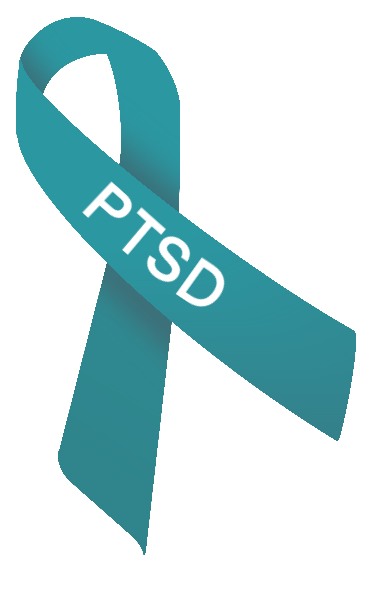
Depression and Anxiety— these are pretty well researched Disorders that I don’t feel comfortable discussing too deeply, as they are very difficult to manage for me and they are kind of distressing topics for me, however I fully encourage you to do your own research! Stay safe!!!<3

LGBTQIA+ Labels
Transgender(ftm)— I was born biologically female, however when I started puberty I quickly realized I did not like the body I was growing into, and somewhere in 2021 or 2022 I figured it out I was a trans man, and so far I haven’t had any identity crisis about my gender, so I think it’s a permanent label of mine! Which is very nice<3

Panromantic— much like pansexual, this means you experience attraction to anyone no matter their gender! Many people with this have gender blindness, I don’t know what that means, so you should probably look that up on your own time as well! :3 but the reason why I say panromantic instead of pansexual, is because I do not experience sexual attraction to people! Which we will get into in a minute🙂↕️

Asexual— little to no sexual attraction, this does not inherently mean you have a low libido, however- you can have a high libido and still be asexual, so do not confuse those!!! me personally, I am sex neutral and asexual! So I’m not inherently bothered by the topic, just make sure not to get me involved or I will sob in self defense! :33

Other labels
Age regression pride flag— so age regression is basically a coping mechanism for people who want to experience their childhood again, for some people that can look like re-experiencing childhood joys, or reverting back to a child like state to make up for the fact that they feel like their childhood was lackluster or they grew up too fast! Me core :3

Therian/otherkin symbol— people who are spiritually connected to animals!! For me, my therio-type is a red fox!! So I feel naturally connected to them- this does not mean that I believe I am a fox, nor does it mean I am a zoo- there is a huge difference, and I am tired of people thinking they overlap. They do not. I am aware that I am a human, however I believe that I am spiritually connected to foxes<3

Cool people in my circle that you should follow!!<3
@0lizard-shark0 -my lovely partner<3
@watermelonolemretaw -my other awesome significant other depending on how this polyamory thing goes!<3
@burntmarshmallowqueen -their sibling that is helping write ydb with both of us and has a very nice and detailed art style >:0c
@blueleon-blog -my awesome older brother figure and my ride or die🙂↕️
@finnsworldz -bestie with the coolest art I’ve ever fucking seen!!! >:3
@gourd-n-cord a really cool friend of mine that I go to school with!! >:33
@m0nst3r-clawz A guy- that is also blood related to me- you can follow him if you want, his oc is pretty cool :3c
@f0rk-kidd a tulpa of mine!!!
For information on my tulpas; this post should take you to the formal introduction post of all of them!! This will be updated if need be so be wary! I have also tagged it ‘salami’ so that you search it easier bc it’s the only post with that tag :3333
I hope that my page brings some whimsy to your day or whatever٩( 'ω' )و🎉‼��✨
19 notes
·
View notes
Note
Hi I heard you really like Flash and I've been meaning to learn more about his character for a personal story I'm writing, do you have any reading recs for Flash?
hi!! sorry it took me a couple days to get around to this but omg I’m so happy that I’m known as the guy who really likes Flash and yes I would love to talk about it!!
not sure how much you know so I’ll just give you a quick rundown of what Flash is like in the comics! he starts as Peter’s high school bully before becoming friends with him in university. he then joins the US army and fights in the Vietnam war, goes back to being a civilian, then joins the army again and loses his legs overseas. after losing his legs, he bonds with the Venom Symbiote and becomes Agent Venom. he stays in the army for a bit and then goes to space to fight with the guardians of the galaxy (pretty insane lmfao). after that, the Symbiote goes back to Eddie and Flash becomes Agent Anti-Venom. he dies fighting the red goblin but then gets revived during the King in Black run. honestly I haven’t kept up with much after that— he’s still Agent Anti-Venom but I honestly couldn’t tell you what he’s up to right now lmfao.
I’m not the most informed on Flash pre-Venom so imma tag my friend @kitausuret who’s definitely more of a Flash expert than me to tag in and fill in some of the gaps in my recs :D
if you’re specifically interested in Flash as Agent Venom, the Agent Venom run (Venom Vol. 2 #1-41) is a pretty great place to start! it follows Flash through his first bonding with the symbiote and working as a covert agent for the US government. the symbiote isn’t much of a character and is more so a tool (much to my dismay) but the run really handles Flash’s character, relationships, and alcoholism incredibly. The first half is mostly focused on him in the army/running from the army and the second half is him trying to live a quiet life in Philadelphia. he pseudo-adopts an edgy teenager named Andi Benton and she becomes his sidekick.
The Space Knight comics are also really well done! it follows Flash and the Symbiote fucking around in the galaxy and doing little side quests for a bit before the real plot kicks in. I really love how Flash and the Symbiote’s relationship and also Flash’s disability! they don’t tackle it head on iirc but they do show him using mobility aids casually and not just relying on the Symbiote to create legs for him which is nice to see. the concept is a bit nuts— Flash and the Symbiote are agents of the cosmos (basically symbiote good guys™️) and are doing odd jobs to help the citizens of the galaxy and making a little ragtag group of friends as they go— but it’s a really fun read!
for more Flash as Agent Anti-Venom, the smaller part of Costa’s Venom run Venom Inc. (Venom Inc. Alpha, Anazing Spider-man #792, Venom #159, Amazing Spider-man #793, Venom #160, Venom Inc. Omega) is very cool! it’s how he gets the Anti-Venom Symbiote in the first place and it develops his relationship with Eddie. they move from like actively hating each other to being mildly okay with the other person.
there’s also Venom Vol. 4, which is also called the King in Black run due to its heavy focus on Knull, the evil symbiote god. as a Venom fan, I can’t recommend this for how it handles the symbiote and Eddie, but Flash is a pretty big part of it and I like how he’s characterized. they try to do a brothers-in-arms dynamic between Eddie and Flash, Flash turns into a dragon at one point, it’s decent from a Flash fan perspective (I’m aware that this run sounds insane— it is lmfao).
I haven’t read a whole lot after KiB— from what I know he got involved with the Venom War stuff and is human again (he’s been debatably not human since KiB)? but yeah. hopefully there’s some useful info in my ramblings about the comics Flash is in :D
#thank you so much for the ask!!!#sorry for rambling so much I love his silly ass so much#also kita no pressure to reply to this if u don’t want to I just know u also love talking about flash#flash thompson#agent venom#agent anti venom#venom comics
14 notes
·
View notes
Text
FINE because all you fancy scholars are too busy talking about sigmund freud, I'm going to write a disability reading of "caligari" MYSELF
so a while ago. I was looking for critical readings on "the cabinet of dr. caligari" through the lens of disability theory because that's what I do for fun. but it turns out, despite the theme of disability being central to the film, I couldn't find any criticism explicitly focusing on the matter. so I wanted to tackle it myself, albeit in an informal context, because I think there really is a lot to say.
disability is defined as "a physical or mental condition that limits one's senses, movements, or activities." some definitions of disability include those recognized by law, but I don't think a disability has to be legally recognized as such for it to inhibit or otherwise impact someone's life. this analysis will not attempt to diagnose characters with recognized disabilities or disorders, but rather will discuss the theme of disability and how it ties into the wider theme of the abuse of power, as embodied by the character of caligari, who exerts his influence onto multiple aspects of the film in different ways. (I've written already about caligari and the intersectionality of his character here; this analysis does touch on the disability angle some, but mainly focuses on who caligari is and what he represents.)
so, the most obvious instance of a disabled character in "caligari" is cesare (and there are others, but we'll get to them later). obviously, he's impacted by sleep disorders; he's a somnambulist, but we also see him asleep for much of the time, even in the short scene before he comes under caligari's influence, suggesting that he also suffers from irregular sleeping patterns as well. while cesare's somnambulism was an existing condition before he was institutionalized, caligari also disables him further by destroying his mental and physical autonomy, through exploiting his pre-existing sleep conditions. cesare's disability is not only caligari's means of controlling him; it's also how caligari completely redefines his identity, and how he's perceived by outsiders as well. as we learn, "cesare" is not his original name; caligari had renamed him after a previous somnambulist named cesare, who had also been forced to murder. but aside from that, we see him frequently referred to as just "the somnambulist," both by caligari and other characters. this is also how caligari presents him as an attraction at the fair- he is first referred to at the town hall as a "spectacle," then as "a somnambulist;" it's not until caligari's exhibition that we see him referred to by a name. it's commonly pointed out that cesare is a highly dual character, and is portrayed simultaneously as both a victim and a threat; his somnambulism is specifically representative of this. because of it, he is not directly accountable for being forced to murder if he's asleep at the time, but caligari also uses it to turn him into a killing machine. I think this may be interpreted analogously to how society may view disabled people; they may be viewed as helpless, but also as threats to abled perceptions of normativity.
I've already talked about how caligari's position as an asylum director ties into the wider theme of how he represents multiple abusive systems of power, but when we read cesare specifically from a disabled lens, this only comes more sharply into focus. in the film, caligari is said to specialize in somnambulism. he has wanted to "become caligari" before cesare entered the asylum. these two details immediately make clear another aspect of the predatory nature of his actions; if cesare's condition is severe enough for him to be institutionalized, there just so happens to be a specialist in his condition nearby who is eager to treat him. meanwhile, caligari had been preparing to experiment on a somnambulist with the goal of making them committing murder, even before cesare came in. so, cesare's lack of autonomy is implied before he comes under caligar's control- he is brought into the asylum while asleep (who sent him there to begin with?), and the one person with the knowledge and credentials to treat him is intent on harming him for his own gain. once under his control, cesare is entirely dependent on him for basic functions, including eating and waking up.
again, caligari's treatment of cesare is a microcosm of the tyranny he exerts on a wider scale. as stated in my previous analyses, caligari takes control of cesare because his disorder presents a vulnerability that he exploits. as seen in real-life abusive situations, especially from those in positions of power, caligari's exploitation of cesare is projected onto a wider scale- he uses him to murder other people in town. if we take the common interpretation of caligari symbolizing a head of state, we can tie this to the idea of cesare being disabled, and therefore the "other." caligari first oppresses this individual in a marginalized position due to his societal and physical vulnerability, then turns this oppression outward. therefore, we can even create an intersectional postcolonial reading from this interpretation, as it suggests caligari's particular brand of authoritarianism works similarly to a colonizing power, wherein those with authority will restrict the rights of or otherwise endanger the population they initially have power over, before doing the same to the colonized population. to further the postcolonial analogy, cesare, in the microcosm of "caligari," may occupy a similar role to the subaltern- that is, a population excluded from the social hierarchy created by colonialism, who is depicted as lacking power or self-determination. while caligari oppresses the people of holstenwall in addition to cesare, we don't see cesare acknowledged as entirely human by anyone in the film, including its protagonists. he is a sideshow attraction, a monster, a means to an end, but never depicted as deserving of sympathy for all he's suffered, although the film makes it clear that he's undergone some form of severe abuse and has forcibly lost his autonomy.
previously, I've examined how caligari's position as a carnival barker plays into his symbolism as an authority figure, but with regards to cesare, I think it's also worth discussing how his position as a carnival attraction may play into a disability reading. historically, circus sideshows were known for exploiting disabled people in exhibitions (along with people from the global south), wherein their differences to the viewing population were treated as sources of fascination, horror, or amusement. cesare's exhibition, similarly, not only draws crowds within the film, but also entices the audience to view him as a spectacle. the camerawork builds up our anticipation before he's revealed, and the long close-up shot of him opening his eyes allows us- the audience of the film- to participate in viewing him in this way. but while cesare's sleep disorders are primarily how caligari advertises him to the audience (in addition to his somnambulism, caligari also claims that he's slept for all 23 years of his life. this claim is likely untrue within the film, as caligari is implied to have done the sideshow exhibit in which he wakes cesare up before, and he details that cesare found murder "abhorrent" in a waking state. nonetheless, caligari seems to be largely in control of when cesare is awake or asleep.), caligari further claims that cesare possesses psychic abilities. While it's not clear if cesare is actually psychic or not- after all, the only prediction we see him make comes true because he kills alan- the idea that cesare's disability would be linked to some supernatural power suggests another way in which disabled people are exploited. when abled society views disabled people as "exceptional," perhaps due to a skill seen as a "trade-off" for disability, this perception often serves as a tool for further marginalization, as the disabled people in question are not viewed as human. when disability is treated as a "superpower" by non-disabled people, it risks the possibility of one overlooking the struggles it may present for a disabled person, along with their humanity. likewise, cesare's supposed "superpower" of omniscience draws crowds to caligari's exhibition, but it also contributes to cementing his status as the "other."
I've talked a lot about cesare and caligari with regards to disability, but I also want to discuss francis here too. at the end of the film, francis is revealed to be a patient in an insane asylum, along with most of the other characters. this twist is highly controversial among those who have interpreted "caligari" with regards to its potential implications for its message on authority, but I think it may also offer some valuable insight into a disability reading as well. for much of the film, francis is presented as having several positive traits- he's fiercely loyal to his friends, has a strong sense of justice, and for the most part, is largely presented as intelligent and rational. however, as soon as francis is revealed to be mentally disabled, the entire perception around him shifts. his credibility is suddenly thrown into question as he interacts with jane and cesare, who themselves are also patients, and when he attacks the asylum director, accusing him of being "caligari," he is suddenly portrayed as violent and irrational, when before, this same action was understood by the audience to be a noble confrontation of injustice. while I don't believe that francis being disabled necessarily devalues anything we've come to learn about him, the film does call his trustworthiness into question as soon as we learn he's a patient. because he's revealed to be mentally disabled, some people even theorize far-fetched claims about him without textual evidence; for instance, I've seen many speculations that francis killed alan, and that's why he doesn't show up at the end. others theorize that because francis is depicted as disabled by the end, caligari is suddenly rationalized, reversing the film's anti-authority themes. I don't think this interpretation holds ground, either; after all, we see the director claim he knows how to "cure" francis, while incorrectly concluding what francis believes him to be. I believe this ending salvages the anti-authority themes, while lending sympathy to francis as well. after all, even if he's an unreliable narrator, when we last see him, he's terrified, alone with who he believes to be his best friend's murderer, whose "cure" will likely be ineffective.
anyway, to wrap this up, "caligari" has a lot to talk about when it comes to the theme of disability, which is why it's surprising to me that I haven't seen a lot of interpretations from this angle. as it's from the perspective of a character who's later revealed to be mentally disabled, but this fact isn't made clear until the end, it's fascinating how many ways we can interpret its themes of disability to be. disability also plays a key role in its more well-known interpretations, including that of caligari as an authority figure, as well as cesare's dual nature. I wouldn't necessarily call "caligari" either a pro-disability or "ableist" film, but I believe it is a film about disability (among a great deal of other things), in which it's largely used as a metaphorical vehicle for many of its other themes.
#the cabinet of dr. caligari#media analysis#finally got this out of my drafts#media criticism#disability theory#long post
25 notes
·
View notes
Text
Blog Post 03: Privilege in Nature Interpretation
You may recall my first blog post, titled My Relationship with Nature. In this post, I discussed how my relationship with nature was formed through my hometown and what was accessible to me. I talked about how I was able to have a positive relationship with nature because I had the privilege to be connected to it, being surrounded by it, and having experiences brought to me. And while that remains true, after completing this unit and reading Chapter 7 of Interpreting Cultural and Natural Heritage: For a Better World, I realized my understanding of privilege only scratched the surface. Prior, I understood privilege to be defined as what you are given in life, and the opportunities that are handed to you. However, I now understand that it goes much deeper than that. My working definition of privilege now includes the understanding that privilege is not just about having something others do not, but how some have set advantages to even have access to those opportunities, and they did not do anything themselves to earn that. The Youtube video Social Inequalities Explained in a $100 Race really helped me understand this. I encourage everyone to take 5 minutes out of their day to watch it.
Now, how does this apply to nature interpretation, and our future roles as interpreters? Well, as interpreters, we strive to be able to share our craft, tell our story, and get people involved. In order to do this, we must recognize the privilege that comes with visitors actually participating. One main reason visitors do not participate is not because they do not want to, but because they can’t (Beck et al, 2018). In order to eliminate this in the future, our roles as interpreters can include the following: include bilingual interpreters, provide transportation, personally inviting minority groups, have information in various languages and forms, having diversity among staff, having sites developed to different group sizes, having an AODA compliant site, and having programs and activities at various times for all ages (Beck et al, 2018). I can also apply these guidelines specifically to my own future role as an interpreter when designing these sites. Throughout my landscape architecture degree, we have learned the importance of following AODA requirements, how we can ensure our design is accessible, and putting them into practice. As someone who is classified as disabled myself, I have first hand seen the benefits of doing so. I also have had the ability to write a thesis and work on my final capstone project about redesigning urban spaces inspired by nature to tackle environmental injustice. Doing that research taught me a lot about the privilege of access to nature. By applying said research with integration of the guidelines listed above, I can ensure that I am using my skills as an interpreter to confirm I am assessing risks, reflecting on myself, and understanding who my audience will be. This will allow me to do everything I can to see, understand, address, and prevent barriers.
Beck, L., Cable, T. T., & Knudson, D. M. (2018). Interpreting cultural and natural heritage: For A Better World. SAGAMORE Publishing, Sagamore Venture.
11 notes
·
View notes
Text
Also preserved on our archive
By Hayley Gleeson
There wasn't a dramatic "lightning bolt" moment when Colin Kinner realised he needed to roll up his sleeves and start tackling what he'd come to see as a pernicious problem: the largely unchecked spread of SARS-CoV-2 in Australian schools.
What spurred him to act, in the end, was the growing pile of evidence that COVID was a serious health threat, and his concern that school communities seemed to be shrugging their shoulders at it.
He was tired of hearing about schools allowing teachers to come to work while COVID positive. Of sick children being permitted to stay in class and infecting others. Of schools asking parents not to tell them if their child had COVID, but routinely sending home letters about head lice or chickenpox. Of teachers and kids catching the virus and not recovering.
"As a parent, I want my son to be safe at school, so that was a key part of my motivation to do this," says Mr Kinner, the Brisbane creator of COVID Safety for Schools, a free online course that aims to correct misinformation and teach school staff and parents how to reduce the risk of the virus spreading. "But also, having spoken to lots of other parents and teachers, it's clear that most schools are lacking an understanding of some of the absolute basics of COVID. And in the fifth year of the pandemic, I find that very troubling."
Every week in Australia too many students and teachers are catching COVID at school, Mr Kinner says, resulting in disrupted learning, teacher shortages, increased transmission in the broader community and disabling chronic illnesses like long COVID. It's hardly surprising: a packed classroom can be the perfect place for an airborne virus to thrive, with one US study finding more than 70 per cent of COVID transmission in homes began with an infected school-age child.
Schools aren't necessarily at fault: in most states they've been starved of good public health guidance, Mr Kinner says — they've been told "they can treat it like any other respiratory illness, so that's exactly what they're doing".
Step one: correct misinformation A science and technology communicator and startup mentor, Mr Kinner's solution was to assemble a team — some of Australia's leading experts in public health, medicine and engineering — who could explain in simple video tutorials the health risks of COVID, the science of how it spreads, and strategies schools can use to keep staff and students well. The ultimate goal of COVID Safety for Schools, he says, is to change minds and behaviour and, since it launched in February, 600 participants have signed up, about half parents and half teachers.
But perhaps its greatest challenge is engaging people in the first place, particularly those who believe COVID is harmless or no longer worth taking precautions against.
For the past couple of years Australians have been encouraged to keep calm and carry on as if the virus is in the rear view mirror, even as it continues sickening and killing people, albeit in smaller numbers than years gone by. News reports often downplay its severity, if they cover it at all, while political leaders, public health officials and doctors have claimed it is no cause for concern, especially in children, and that catching it is not just inevitable, but necessary.
But mounting evidence shows the opposite. Even in vaccinated people and those who suffer "mild" infections, COVID can trigger a range of health problems including cardiovascular disease, diabetes, neurological conditions and immune dysfunction. Then there's long COVID, a debilitating multi-organ illness that has upended the lives of hundreds of millions of children and adults worldwide, many of whom do not fully recover.
"COVID is like an accelerator for all the other diseases that we hate — it's actually an aging accelerant as well," Professor Jeremy Nicholson explains in one of the course videos. "And we don't want that for our kids or anybody else."
Simple steps can stop COVID spreading Once apprised of the health risks, course participants are taught about evidence-based tools schools can use to reduce viral transmission. These are not outlandish or burdensome interventions, but common sense steps like encouraging teachers and students to stay home if they're sick; improving indoor air quality with ventilation and filtration — with air conditioning systems, air purifiers and good old-fashioned open windows; and promoting mask wearing particularly in high-risk settings like crowded indoor gatherings or bus trips.
Of course, some education departments already require schools to take similar measures. In Victoria, for instance, all public schools must "maximise" external ventilation, ensure air purifiers are used, encourage good personal hygiene and make face masks available for those who want to wear them. But that doesn't mean schools actually follow the guidelines or use the tools at their disposal (in 2021 the government delivered tens of thousands of air purifiers to schools across the state, but many are no longer used and some have since been listed for sale on Facebook Marketplace).
The federal president of the Australian Education Union, Correna Haythorpe, says any initiative that educates people about COVID and what schools can do to prevent infections is "welcome". Teachers who have to take sick leave because they've caught COVID or developed long COVID are an additional burden on schools, many of which are struggling with the "chronic" national teacher shortage, she says. Then there's the disruption to learning: "A contagious disease can very quickly … take out significant numbers of students. And fundamentally, we want kids to be engaged, we want them to be well, we want them to be learning."
Improving the situation, though, requires stronger leadership from education departments, Ms Haythorpe says. "Current government approaches to limiting COVID infection, repeat infection and long COVID demonstrates a lack of concern for the health and wellbeing of students, teachers and broader school communities," the AEU wrote in its submission to Australia's parliamentary inquiry into long COVID. Mitigation measures in many public schools are not adequate, it said, "and a lack of capital investment … since 2017 means that conditions are often cramped with inadequate air flow".
'Long COVID basically ended my career' For Amanda Sharpe, these problems are personal. Before she developed long COVID after catching the virus from her children in 2022, Ms Sharpe taught advanced maths at a high school in Bundaberg, Queensland. She used to spend full days on her feet, relishing the buzz of helping her students solve complex equations, preparing them for careers in fields like medicine and aerospace engineering.
Now, just sitting upright for a short spell or reading a simple news story can quickly worsen her symptoms and wipe her out for days. "Long COVID basically ended my career and I doubt that I'll ever be able to return," she says. "Unless there is an actual cure, I think that will be it for me."
It's bewildering that schools aren't taking stronger action to protect their staff and students from COVID, says Ms Sharpe, who tells her story in the COVID Safety for Schools course. A major issue is that many people still think of COVID as a respiratory illness, she says — they don't realise it can also attack the vascular system, damaging blood vessels and increasing the risk of clotting abnormalities, stroke and heart disease.
She also wishes more people knew that the virus can cause brain changes and cognitive impairment: one study, for instance, found people who recovered from "mild" COVID infections had lost the equivalent of three IQ points.
"With the maths I teach, you really can't afford to have your IQ drop," Ms Sharpe says. "I just don't understand why schools aren't implementing simple measures like improving indoor air quality — especially private schools, where academic results link directly with enrolments and success."
In response to previous disease outbreaks like Spanish flu and tuberculosis, schools moved lessons outdoors — sometimes in freezing winter temperatures — to stop children from getting sick, she says. "But we don't want to have classroom windows open in Queensland? It just seems insane to me."
What about WHS laws? It may also be unlawful. Australians may have been led to believe that public health orders in force until 2022 were the key reason employers, including schools, had to take steps to protect staff from COVID, says Michael Tooma, a partner at the law firm Hamilton Locke. But schools have always had to comply with workplace health and safety laws — "there has always been a duty of care", he says. "COVID presents a risk to health and safety and, like any other risk, it needs to be managed with proactive policies and procedures that try to eliminate the risk or reduce it as far as reasonably practicable."
At the very least, Mr Tooma says, schools should be excluding people with COVID from the workplace, improving ventilation in classrooms and auditoriums and maintaining sensible cleaning and hygiene regimes.
Schools that fail to meet their WHS legal obligations may be reported to and investigated by state regulators, which can issue improvement notices and in some cases bring prosecutions for serious breaches of the relevant legislation.
Still, Mr Tooma says he's not aware of any schools being prosecuted for COVID-related breaches and in general, regulators tend to focus on industries that have higher risks of serious physical harm and death, as well as "campaign" issues like mental health. "Regulator activity tends to follow public interest and so as public interest in COVID and COVID safety has waned, so has regulatory activity around it, in my experience."
Mr Kinner suspects it's probably going to take successful litigation for schools to start taking COVID more seriously. He points to a UK case in which 120 teachers with long COVID are suing the Department of Education for allegedly failing to protect them at the height of the pandemic. Those involved say they were not given good enough guidance for managing the risks the virus posed, with data showing teachers suffered high rates of infection and long COVID.
"I think it's only a matter of time before we see similar legal action in Australia," Mr Kinner says. "It could be from teachers, it could be from families who caught COVID because it came into their household via the school. I think it's inevitable."
In the meantime, he will keep trying to get COVID Safety for Schools in front of as many teachers, parents and principals as he can — even if it takes a while, even if they don't want to hear its message.
"I've been very surprised at how school leaders don't act when they're presented with this information, even people who go through the course and understand — or should understand — that this is a virus we should be taking very seriously," Mr Kinner says. "Because facts remain facts. Even if you don't like them, even if they make you feel uncomfortable, they're still facts."
#mask up#pandemic#covid#covid 19#wear a mask#public health#coronavirus#sars cov 2#still coviding#wear a respirator#long covid#covid conscious#covid is not over
59 notes
·
View notes
Note
Hi, Im writing two autistic characters and I would like some advice for their backstory. I myself am autistic and Im using them to project my own experiences, but Id like to ask for some outside opinions as well. The two characters are twins, the sister was always better at masking than the brother, who also had really bad sensory issues. In the future they ended up having a falling out when their friend group all goes out to a concert, and the brother can’t enjoy it because the noise hurts his ears. Afterwards they go to a restaurant and they have an arguement because the brother can’t eat the food due to his sensory issues (keep in mind neither of them are diagnosed) and they’ve been on not the best terms since and low contact. The main reason why its such a big deal is because it was meant to celebrate one of their friends (brother’s best friend) getting into their dream college.
Their story basically tackles the brother learning that he isn’t a burden on the people around him, while the sister also tackles her own internalized ableism.
Hi asker,
So their backstory seems to me, based on the information I have from this ask, that the sister is generally being at least somewhat ableist towards her brother. And since they are both undiagnosed, there's also an element of not understanding sensory needs (especially the brother's) because they aren't necessarily attributing it to being a disability trait. Since the sister masks more than the brother, perhaps she is seeing his sensory issues as something he should be able to control or something of the sort. And the event you describe is kind of the tipping point for their relationship.
Please correct me if I'm wrong there, by the way.
So, I'm not sure on advice on what specifically you want regarding the backstory, but it does seem like a pretty realistic situation, especially in regards to the way you want the story to go. It seems like it's open for character development for both the characters, and probably the friends too.
As a note to your story, not the backstory, internalized ableism is mostly about being ableist to yourself. Disabled people can be ableist to other disabled people, sometimes as a result of internalized ableism and sometimes it's just entirely externalized ableism. The sister does I bet have internalized ableism about herself, and can be ableist towards her brother and his needs. If you want her to address her internalized ableism, she should probably address ableist behavior she's had towards her brother, too.
Some general questions I have that you might want to ask yourself are:
what exactly bothers the sister so much about this? yes, it's about their friend getting into their dream college so i can get that she's mad they didn't celebrate 'accordingly,' but is there anything else?
what does the brother say or do when he gets invited to things like the concert or the restaurant where he can't eat anything? did he know he wouldn't be able to enjoy them? was he hoping to anyway? did he not know and is just finding out how hard that was going to be for him?
what does the brother feel about how his sister has acted? likewise, what does the sister feel about how her brother acted?
do either of them ever figure out they're autistic?
what do the friends feel like about the falling out? they were there. and the way the friends feel and react likely affects how Brother and Sister feel and react as well -- friends can take sides, try to stay out of it, etc.
you say the sister is better at masking than the brother. how does she feel about that? how does she feel about masking? what exactly does she have to mask?
how does the brother feel about his own masking ability? about his sister's ability to do the same?
also, do either of them understand this as masking or is it more of a "i'm sure everyone's doing this all the time. whatever" type of situation?
By the way, I put these questions not because I think you haven't posed any of these questions to yourself already. You probably have asked yourself at least some of them, and know probably many of the answers even if you haven't specifically asked yourself the question.
Mostly I'm putting them out there because answering them and/or knowing you already have the answer can help you like, feel comfortable in how you are telling the story and characterizing these characters.
You currently seem to have a pretty reasonable starting point that makes sense within the story you want to tell. This feels like something that, yeah, that could just happen in real life, and probably has. I think that's likely what you were going for, from what I can gather, so, that would work out!
Hope this helps,
mod sparrow
30 notes
·
View notes
Note
Do you think that Tenel Ka uses the Force to dull any phantom pain from her missing arm? (I also need the distraction)
WHAT a great question :D with the disclaimer that I am not an expert in this topic:
phantom limb pain is common from what I’ve read, so it’s very likely to be something tenel ka would experience. I think especially early lightsabers TK might at first try to ignore it or power through it - lightsabers features so much growth for her, but you can’t tackle everything at once, yknow. So much of her feelings about being an amputee are tied up in her desire for bodily autonomy and independence, and so she might try to hold onto mentally controlling or ignoring pain - however, in lightsabers, she also comes to the realization of considering her use of the force another aspect of herself, not something that takes away from what she can accomplish. The force having application as a disability aid would probably tie in really well to her arc here.
noting that she was on a hapan ship when most immediately dealing with her injury, I think she might distrust doctors and be disinclined to see one about this due to everyone who was there being more motivated by the queen mother’s agenda than her welfare, and being extremely ableist to her in the process as I recall. In contrast, I think the early chapter in lightsabers where she considers and contrasts her experiences with Luke’s provide an indication that she might eventually pick his brain about possible force using techniques for controlling this type of pain. They are shown to have a relatively close relationship in this era. we don’t get much detail on like, medical facilities in Luke’s Jedi academy (the series is a bit sparse on logistics), but I could still see TK experiencing some friction depending on how they operate.
and of course this aspect of force powers would fall under the control umbrella of we use the control, sensing, alter classification of force powers, and is more specifically and aptly named control pain. I am curious if a Jedi could attempt to use this power for long term pain, or if it would be a strain in and of itself for that. One thing I read said that phantom limb pain may eventually dissipate with time, so perhaps using control pain might bring one to a point where it’s not needed. The force also could maybe be used to directly administer some treatments that are attempted to alleviate pain like nerve stimulation. Either way, this would be something she would likely be getting information from Luke about, and possibly training, as there might be some danger in attempting to learn this as an unsupervised student.
@fancyfade - I’m curious if you have any thoughts on Jedi using the force to manage chronic pain
#thank youuuuuuu this was an awesome ask#star wars#tenel ka#tenel ka djo#if anyone has a comment on this feel free to add#young jedi knights#man one thing lightsabers does and sells so well is that it’s just like taken as a given that TK is perfectly valid in not wanting a#prosthetic arm - and perfectly valid for using the force to blast all the equipment and doctors away from her who were trying to force it#luke skywalker#thank you again for the ask though I missed having Thoughts about tenel ka#Lightsabers ily#this could have a million more words honestly probably but I’m capping it here and just going to post now
12 notes
·
View notes
Text
Why So Serious? This is a Dinosaur Blog?
So we live in a world that has built its entire mythology off of hierarchies. The idea that the rich are better than the poor. The whites better than people of color. Men better than women. Able-bodied and able-minded better than the disabled and neurodivergent. Straight, cis folk better than queers. christians better than any other people of any other religion. That's the society we in "western" places live in. Another fundamental component of that is that humans are better, more important, more "evolved" or "chosen" than any other living thing.
and that is just as false as all the rest of them.
you can't dismantle it without dismantling the others first, of course. since humano-supremacy is the one the rest is built off of, you won't properly unlearn it unless you unlearn white supremacy first. that's why we see countless vegans being real racist pieces of shit all the time.
but you do have to unlearn anthropocentrism, too. you do. because the biosphere is all fundamentally equal. we are one part of nature, of the ecosystem, connected to all the rest. we are partners in the evolution of life. understanding that is necessary: to combat climate change, to fight against ecofascism, to ensure the survival of our species and the world. we are not uniquely evil or uniquely good. we're just some naked apes that made a bunch of mistakes, but we can fix them, too.
I live with five parrots. every day they remind me that the idea humans are "more evolved" is ridiculous. they understand things I would never expect. and they remind me that they're dinosaurs every damn day. and that's just another type of tetrapod, something so close to us its easy to empathize with them. Now apply it to fungi. It gets harder, right?
But that's why we have to keep working.
And that's why we have to see the history of life not just as an interesting story, but the story of us. The history of all of us. and it explains so much! The quirks of geology lead to the geography of slavery in the united states. Humans wouldn't have even evolved if a rock hadn't randomly hit the planet at the right time. We have hiccups because we descend from fish. The list goes on.
We need to produce a human population that thinks ecologically and evolutionarily, so that we can tackle the real problems and move forward.
And that's why I'm so gd-damned serious about dinosaurs. Because dinosaurs, in that western mythos, are the "lumbering, dumb lizards" that went extinct because they sucked, so the cool mammals could come in and run the show - and we, the coolest mammals of all, took our rightful place as the leaders.
But that's not what happened.
Dinosaurs were well adapted for their environments, intelligent and active animals - and were thriving right until the end-Cretaceous. Nonavian ones only went extinct because of a giant space rock. And dinosaurs are STILL WITH US - as birds - and doing better than ever. There are more species of dinosaur alive today than there are mammals. and humans just kind of, happened, thanks to some lucky accidents. we are as much a product of random chance as the extinction of nonavian dinosaurs was.
All of our anthropocentric myths are just that - myths. frankly, how can we call ourselves "more evolved", when we're destroying the planet - gleefully and rapidly? We have to unlearn this myth.
And, in between crying about my thesis, I will do everything I can to help people unlearn that myth and see the true beauty that is the history of life.
so, yeah. come learn with me. it's the only way to liberate us all.
191 notes
·
View notes